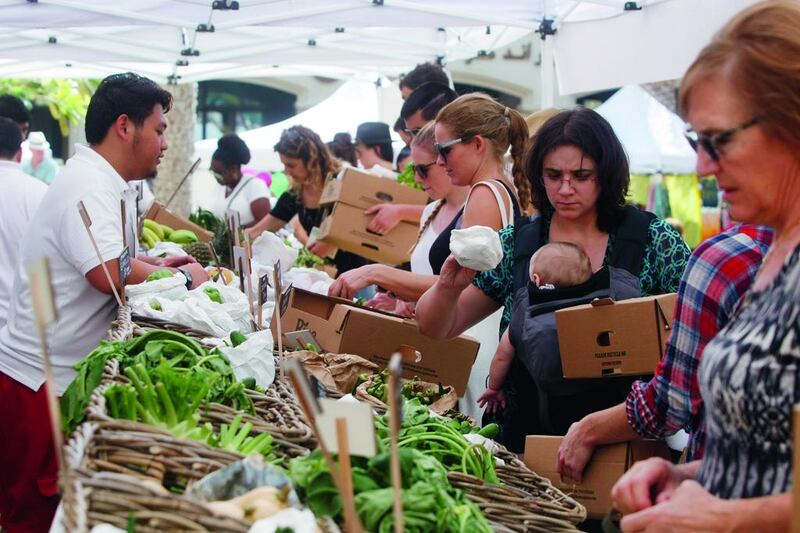There are few topics that ignite as much debate in the world of nutrition as organic foods.
A large 2014 study led by researchers at Newcastle University in the United Kingdom found organic food to be “high in antioxidants and lower in toxic metals and pesticides”. But in response to the findings and resulting media headlines, some nutritionists and scientists doubted the methodology and even went as far as to question the legitimacy of the lead researcher. The findings were in direct contrast to what was, up until that point, one of the biggest studies in the organic versus non-organic foods debate.
In 2009, the UK’s Food Standards Agency, a government body, said an independent review found “no important differences” in the nutritional content or any other benefits between the two types of foods.
Gill Fine, then director of consumer choice and dietary health at the FSA, said: “This study does not mean that people should not eat organic. What it shows is there is little, if any, nutritional difference between organic and conventionally produced food and that there is no evidence of additional health benefits from eating organic food … We recognise there are many reasons why people choose to eat organic, such as animal welfare or environmental concerns.”
The organic food scene has been expanding steadily in the UAE. There are now dozens of local farms growing organic produce and the organic shelves in the supermarkets seem to keep getting bigger.
Ripe, which hosts weekly organic food markets in Abu Dhabi and Dubai, was set up by Becky Balderstone when she found she couldn’t source seasonal organic foods here. It works with more than 10 farms across the country, all of which are certified organic.
For Balderstone, organic is the only way forward. “Eating organic is about the way that nature intended – fruit and vegetables that are farmed free of chemical pesticides and are GM-free,” she says. “They are better for your health, as well as the environment.”
Organic status in the UAE is determined by the Emirates Authority for Standardization and Metrology. All products, soil and water must be tested by a regulated laboratory of the Ministry of Environment and Water. Genuine, locally farmed organic foods must be grown using organic seeds and without the use of pesticides, synthetic fertilisers, or any other synthetic or genetically modified tools.
As per the ESMA registration requirements, to be certified organic, producers must show their Organic System Plan, detailing the practices and substances used on the farm, as well as their farm or factory ownership documents.
Imported organic items must be certified by a Ministry of Environment and Water-approved body, most of which are European or in the United States. These countries tend to have advanced organic certification systems with strict rules to prevent misleading labelling.
A US producer cannot be declared officially organic for three years if found using prohibited substances, for example, and every operation will be inspected by someone from the US department of agriculture. Produce is either marked as 100 per cent organic, or just organic, depending on the ingredients and practices. The US has arrangements with Europe that allow the certification to be automatically carried over when importing and exporting the goods.
As well as the debate surrounding the nutritional value of organic produce, there is also a divide in opinion about how much of an impact pesticides have. Lena Nasih, senior dietician at Cleveland Clinic Abu Dhabi, says the use of pesticides is highly regulated and the trace levels found on commercial produce are determined safe for human consumption.
“Additionally, some research has shown that organic foods are not necessarily 100 per cent free of pesticides,” she says. “Regardless of whether you’re buying organic or conventionally grown, it’s important to wash and handle the food appropriately, as human contamination of the produce is also possible during packaging and handling.”
She says some people may eat organic because the “farming practices are typically more eco-friendly”, and because they want to support local farmers.
“Given the low intake of fruits and vegetables in certain populations,” she says, “aiming to meet the recommended daily servings of these two food groups, regardless of the way they are grown, should be a priority.”
Ripe sells produce from local farmers, which means they are usually harvested and sold in a shorter time than imported foods. Cost is another factor that influences people’s decisions. In general, organic foods are more expensive than non-organic.
Balderstone has an explanation for that. “No pesticides or chemical fertilisers are used in organic farming. This can increase the risk of crop damage and in some circumstances entire crops can be wiped out,” she says. “In addition to this, because there are no chemical fertilisers the yield is a lot less from each crop.”
But are the benefits worth the price tag?






